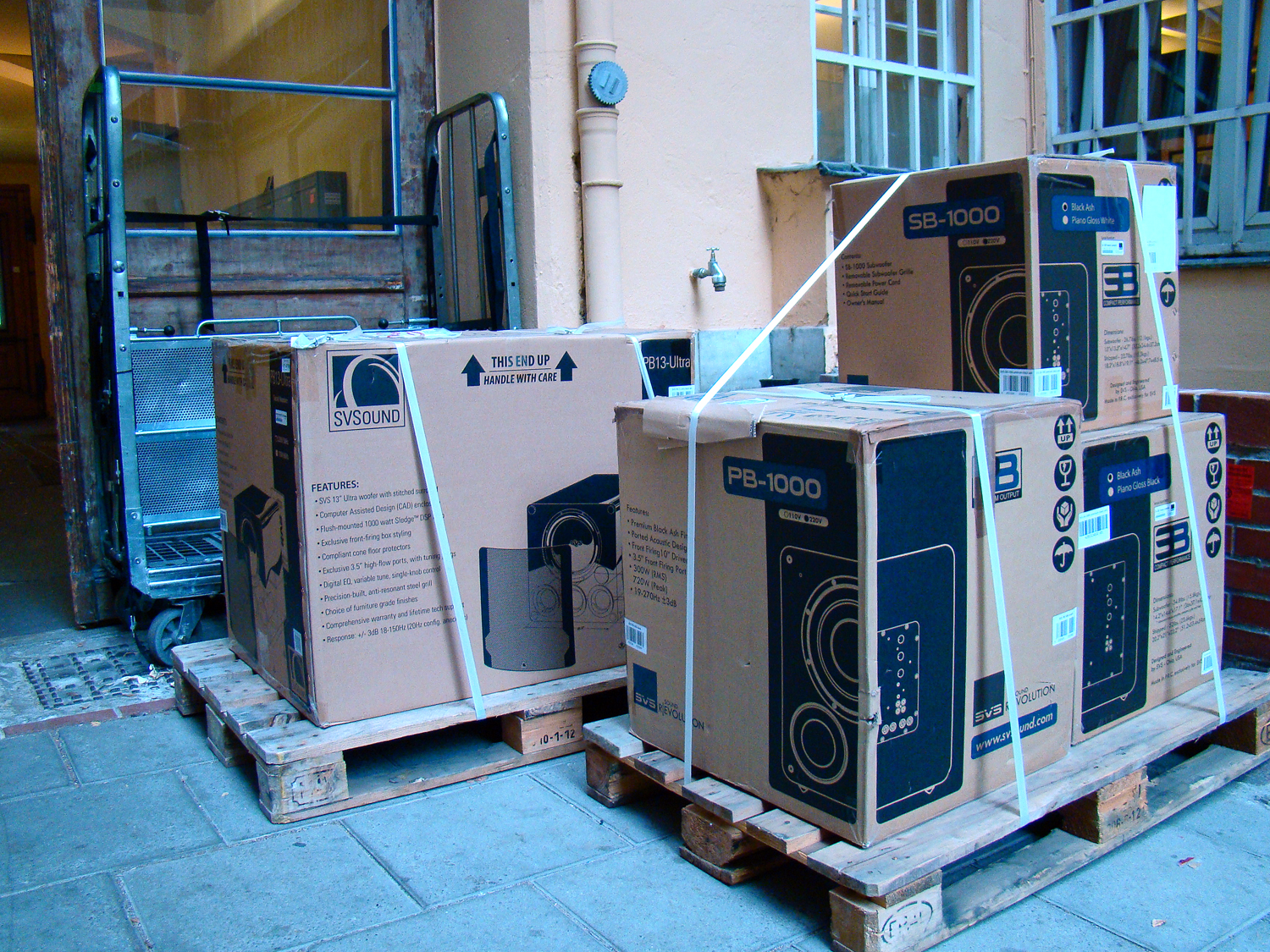It happens again and again that the two terms are thrown together. So, to clear up the misunderstanding, we want to shed light on the differences. Generally speaking, the two avenues differ in that the warranty is the retailer’s responsibility, while the manufacturer determines the guarantee. But what does that mean exactly?
A Warranty
The warranty or liability for material defects describes the legally regulated assurance of claims of buyers against sellers, should the latter have delivered a defective product. When concluding a sales contract, sellers guarantee that the goods sold are free of material defects and defects of title. In case of defects that already existed at the time of sale, sellers are obligated to pay for them. According to the law, buyers have a right to subsequent performance, purchase price reduction, damages, or even the right to withdraw from the purchase contract.
The subsequent performance is the primary right. This can take the form of replacement with a new item or the elimination of the defect in the form of a repair. Which type of supplementary performance is to be provided is determined in principle by the buyer and not by the seller. A contractual shift of the right of choice is conceivable in principle but not possible in the purchase of consumer goods. However, if the trader incurs “disproportionately high costs”, the chosen type of supplementary performance may be refused. In case of a defect, the trader has to “bear all costs for transport, labor, and materials.” Customers can also demand an advance payment for the transport or shipping costs. For the buying person, there is also the possibility to remedy the defect himself and to claim from the dealer the use of the costs necessary for this as a claim for damages (§ 437 No. 3 BGB).
But what exactly does a so-called “defect” now include? According to § 434 and § 435 of the German Civil Code (BGB), a defect exists, for example, “if the purchased item does not have the contractually agreed quality, is not suitable for normal use, or the installation has not been carried out properly.” This also includes hidden defects that may only become apparent later. It should be noted that the obligation to rectify defects is limited to two years under Section 438 of the German Civil Code (BGB). The damaged item must therefore be claimed as damaged or defective within the first 24 months after purchase for the warranty to still apply. Since January 1, 2022, it has been legally presumed, in favor of the consumer, within the first year after purchase that the goods were already defective at the time of delivery. Attention: For all purchases before this date, it is only six months! Therefore, if the selling person is of the opinion that the defect only arose after the purchase, this must be proven during the first twelve months. After this time, the burden of proof reverses. That is, from now on, the buyer must prove that the defect existed at the time of purchase. In the case of used goods, the warranty period can be shortened to twelve months within our Terms and Conditions or by agreement between both parties.
Guarantee
While dealers are legally obligated to provide a warranty, the guarantee is an additional, voluntarily agreed service provided by the manufacturer (manufacturer’s warranty) or sometimes also by the dealer (dealer warranty). Under no circumstances may a guarantee promise reduce the scope or duration of the statutory warranty, let alone replace it. It always applies only in addition to the statutory warranty. Since guarantee is a freely configurable service provided by a manufacturer or retailer to the customer, the duration and conditions can be defined individually. In most cases, the manufacturer guarantees that the product will function for one to two years under normal use. If a defect should occur during this period, it does not matter in the case of a warranty whether it existed from the beginning or only arose later. Many manufacturers limit their guarantees to specific parts or features of an item, for example, the drive of a computer. In particular, worn parts such as batteries are usually excluded from the guarantee. In addition, it can happen that only spare parts are covered by the warranty, so the repair costs must be borne by the buyer. Beyond that, however, there are many other ways in which a warranty can be voided. Within a so-called warranty statement, the exact warranty conditions are listed, such as information about the guarantor, the duration and the content of the guarantee, as well as information about the non-limited warranty rights and a description of the procedure that the buyer must follow. Such a statement must be provided in writing by the selling party to the buying party no later than at the time of delivery on January 1, 2022. Incidentally, without a corresponding warranty declaration, there is also no warranty claim.
Complaints
Now that we’ve broken down the major differences between warranty and guarantee, we would like explain how this should be considered in reality. If both the warranty and the guarantee are still in effect, consumers can choose how they want to complain about the product. A manufacturer’s guarantee, for example, only provides for a repair, but usually no refund of the payment amount. The warranty, on the other hand, permits withdrawal from the purchase contract if the repair has already failed twice or the retailer has already replaced the product in vain. The legal warranty also includes used parts, often excluded in a guarantee. If a defect occurs after purchase and it can be assumed that it was not present before, it is worth taking a look at the warranty certificate.
Hopefully, it will become clear that depending on the situation, a different complaint system may be called for. Perhaps you are now asking yourself what to consider in the event of a defect occurring in an item purchased from us at Hifi im Hinterhof. So let’s get to that next!
At HiFi im Hinterhof
Already once in advance: Since the HiFi products we sell are usually products in the high-price sector, it is always particularly annoying when something does not work as it should. The satisfaction of our customers is our top priority, and for this reason, we try our best in advance to avoid such situations by selling only products of which we are convinced not only on the sound aspects but also on the construction quality level. In doing so, we rely primarily on empirical values and sometimes remove products from our range that do not deliver what they promise. We want you to receive a product that you can enjoy for as long as possible, and instead of planned obsolescence, we focus on durability. Instead of you, our customers, being forced to buy a new device after a few years because your old one has given up the ghost, we aim for a different goal. Quite frankly, we hope that the enjoyment of your long-lasting product will eventually blossom into a desire in you to further optimize your home sound with complementary sound components. Nevertheless, we must remain honest at this point. Of course, despite our best efforts, we are not spared from the occurrence of defects. So it can happen that you receive a device that does not meet the requirements. In such a case, it remains our greatest effort to find the best solution together. Should we at HiFi im Hinterhof not be able to repair the fault ourselves, we will of course, take care of the processing, i.e., the service of forwarding the damaged item to the manufacturer’s workshop. This applies to both store purchases and online orders. In the latter case, it is particularly important to make sure that you complain about the defective goods, preferably in writing, and describe the defects that have occurred as precisely as possible in the form of a letter or by e-mail.
Final Thoughts
To answer the main question in a nutshell: Yes, there is a difference between a warranty and a guarantee. The difference lies in the fact that a warranty is a legally stipulated obligation on the part of the dealer to rectify defects, while a guarantee is an additional, voluntary, and freely interpretable service provided by both the manufacturer and the dealer. It is worth knowing this difference because, should both complaint systems still are in place, it is worth considering which is most appropriate to the situation at hand.
We hope this clarifies a complex topic and that you feel informed when making your next purchase.
If you have any questions or a complaint about something you purchased from us, please don’t hesitate to get in touch.



